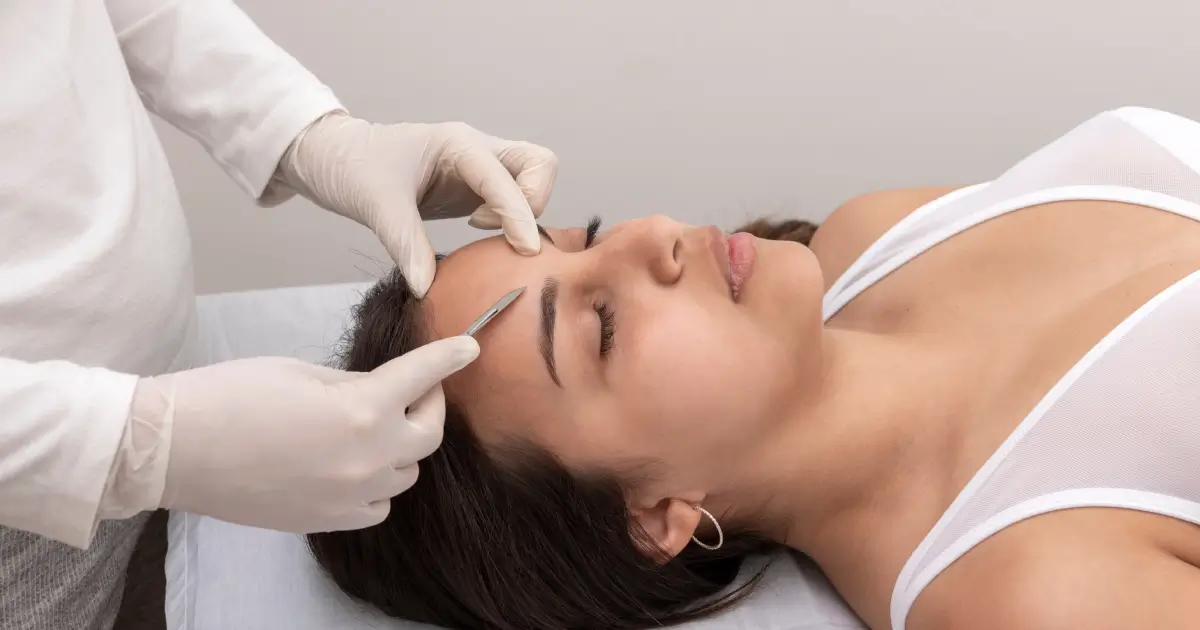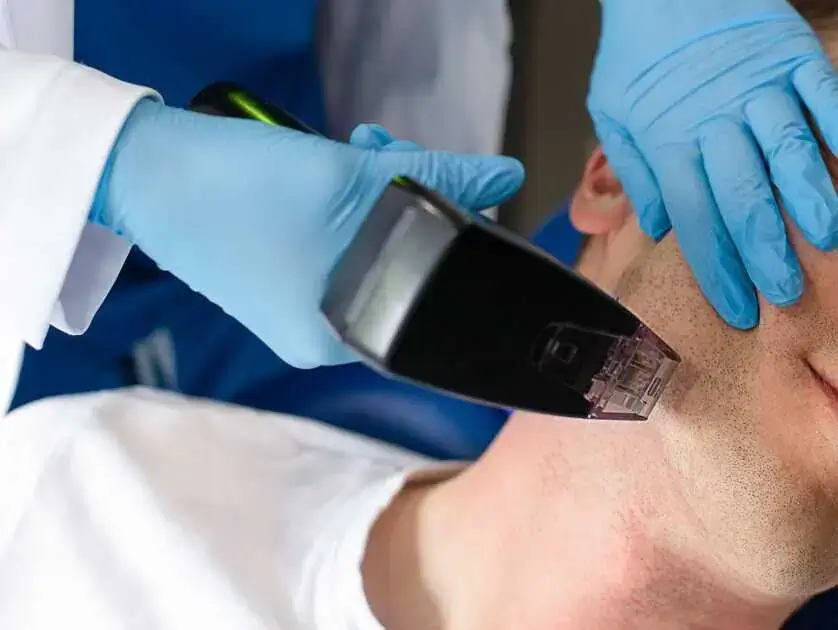Pursuing hormonal balance and well-being is a deeply personal journey for many individuals. Exploring avenues to alleviate menopausal discomforts, navigate gender transitions, or address hormonal imbalances, hormone replacement therapy (HRT) often emerges as a potential solution. However, it is indispensable to be acquainted with the dangers of this route to hormonal harmony and the promises of restored equilibrium.
HRT holds appeal in its ability to relieve symptoms, enhance the quality of life, and restore vitality. Yet, behind the curtain of benefits, a range of potential risks awaits acknowledgment and assessment. Within this realm of risk assessment, the intersection of personal quests for hormonal balance and broader understanding must occur.
Our purpose is to empower individuals embarking on or considering hormone replacement therapy. By offering insights into the risks involved, we aim to equip readers with the knowledge to engage in informed discussions with healthcare providers. This personalized approach will allow individuals to navigate their unique path toward hormonal equilibrium while safeguarding their well-being.
What Is Hormone Replacement Therapy?
Hormone replacement therapy (HRT) is a medical treatment that involves using medications to supplement or replace hormones in the body. It is primarily employed to address hormonal imbalances and manage symptoms associated with specific conditions most commonly related to menopause.
During menopause, a natural process that typically occurs in women around 45 to 55, the body undergoes significant changes in hormone production. The ovaries gradually reduce their estrogen and progesterone production, leading to various symptoms and physiological changes. These can include hot flashes, night sweats, mood swings, vaginal dryness, sleep disturbances, and a higher risk of osteoporosis.
HRT for menopausal women aims to alleviate these symptoms and improve overall well-being by replenishing the declining levels of hormones. Estrogen is the primary hormone used in HRT, sometimes in combination with progesterone. The specific type, dosage, and administration route of hormones depends on individual factors such as medical history, symptoms, and preferences.
HRT can be administered through different methods, including oral tablets, transdermal patches, creams, gels, or sprays. Each method has advantages and considerations, and the choice is often made based on convenience, effectiveness, and individual preferences.
Benefits Of Hormone Replacement Therapy
Hormone replacement therapy (HRT) offers several potential benefits for individuals experiencing hormonal imbalances or menopause. The following are frequently cited advantages of HRT, though help may vary based on the particular conditions and individual response:
- Alleviation of menopausal symptoms: HRT can effectively reduce or eliminate many uncomfortable symptoms associated with menopause. Hot flashes, night sweats, vaginal dryness, mood swings, sleep disturbances, and cognitive changes are among the symptoms that may be alleviated with HRT. By restoring hormonal balance, HRT can relieve and improve the overall quality of life.
- Improvement in quality of life: Menopause symptoms can significantly impact daily life and overall well-being. By managing these symptoms, HRT can improve quality of life by reducing physical discomfort, enhancing emotional stability, and promoting better sleep patterns.
- Positive effects on bone health: Loss of bone mass and an increased risk of osteoporosis can result from declining estrogen levels after menopause. Estrogen therapy, in particular, can help preserve bone density and lower the incidence of fractures. This benefit is especially relevant for postmenopausal women at higher risk of osteoporosis or with a history of bone-related conditions.
- Enhanced sexual well-being: Menopause can change sexual desire, vaginal dryness, and discomfort during intercourse. HRT, specifically local estrogen therapy, can address these issues by improving vaginal lubrication, elasticity and reducing discomfort. This can help women maintain a satisfying and fulfilling sexual life.
- Psychological benefits: Hormonal fluctuations during menopause can impact mood, leading to irritability, anxiety, or depression. HRT may alleviate these psychological symptoms, promoting emotional well-being and stability. HRT can positively impact an individual’s mental health and psychological state by reducing mood swings and
improving overall mood.
Potential Risks Of Hormone Replacement Therapy
Hormone Replacement Therapy (HRT) has benefits and potential risks that should be considered. While HRT can help relieve menopause symptoms and enhance sleep, mood, and sexual health, it’s essential to be aware of potential side effects. Based on the scientific results, the following are some potential dangers related to hormone replacement therapy:
- Increased risk of endometrial cancer: When undergoing hormone therapy, women who have a uterus and are not taking progestin and estrogen may be at an increased risk of developing endometrial cancer.
- Increased risk of blood clots and stroke: Hormone Replacement Therapy may potentially increase the risk of blood clots and stroke. Discussing this risk with a healthcare practitioner before starting HRT is essential.
- Increased chance of gallbladder/gallstone problems: There is a possibility of an increased risk of gallbladder or gallstone problems with hormone therapy.
- Increased risk of certain cancer forms: hormone replacement therapy raises the chance of developing several cancers, including endometrial and breast cancer. It is important to remember that the risk varies depending on age, the type of hormone therapy used, and personal medical history.
- Prostate cancer: For individuals with a history of prostate cancer, it is crucial to thoroughly discuss with a healthcare provider before considering HRT.
Discuss With A Qualified Provider
When it comes to important decisions regarding one’s health, seeking guidance from a qualified healthcare provider is crucial. Discussing matters related to medical treatments, including hormone replacement therapy (HRT), with a qualified provider ensures that you receive accurate information, personalized advice, and appropriate recommendations. Here are a few key reasons why it is essential to have discussions with a qualified provider:
- Expertise: Healthcare providers have specialized knowledge in HRT and can provide accurate information and personalized recommendations.
- Individualized Assessment: They can evaluate your specific health needs, consider your medical history, and determine your HRT suitability.
- Risk-Benefit Analysis: Providers can discuss HRT’s potential benefits and risks, enabling them to make an informed decision.
- Monitoring and Management: They will closely monitor your response to the treatment, make necessary adjustments, and minimize potential risks or side effects.
- Alternative Options: Providers can explore non-hormonal strategies or alternative treatments for symptom management.
- Informed Decision-Making: Discussing HRT with a provider empowers you to participate in your healthcare decisions actively.
Takeaway
Take the next step towards optimal care for your health with Gentle Giant Care. Schedule a consultation with our qualified healthcare providers today to discuss your specific needs and explore the benefits of hormone replacement therapy (HRT). Our team is dedicated to providing personalized guidance, evaluating potential risks, and ensuring your well-being.
Don’t hesitate to reach out and embark on a journey towards better hormonal balance and improved quality of life. Contact Gentle Giant Care to start your path toward optimal health and well-being.





